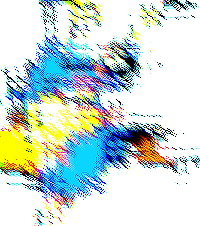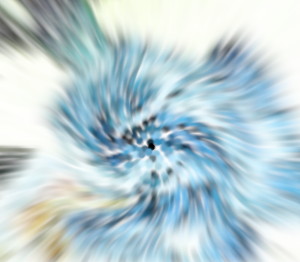Computer Music II


It seems that the Geist that is in the Zeit these days is 'interactive performance', so we thought we'd chase an aspect of it during the class this term. In the ancient past, this class was a continuation of Computer Music 1 (G6610X), but that is no longer true. Our advanced computer music seminars are now relatively independent and topic-oriented.
We have offered a number of recent classes that engage the concept of performance-interactivity. To be sure, it is now a major component of our introductory courses. The challenge we face in this class is to approach interactivity from a different perspective; one that hasn't been thoroughly investigated in the other CMC courses.
With that in mind, we are planning to explore the interaction between performers and on-going processes, or semi-autonomous musical procedures instantiated in software. We will also consider how various hardware interfaces can connect with these software processes. To a certain extent, this will build upon some of the algorithmic music concepts we covered in last term's Computer Music 1 class, but it is not necessary that you have taken that class to participate in this seminar. We'll be saying more about exactly what we mean by "interactive processes" as the semester progresses.
We do plan to get into a bit of programming, mainly using the Max/MSP music development environment (and some add-ons we have developed here), but our trail into any software-hacking will be marked by musical objectives. Don't worry if you haven't done any coding before, our intention is to unpack the design and development of interactive processes in such a manner that it will be IMMEDIATELY CLEAR AND WONDERFUL for all of you. Seriously, we plan to spend a lot of time going through how things work and developing examples in class of the techniques we discuss.
As always, we'll also have a couple of special guest-stars coming into the
class as the term progresses. Stay tuned for partciular info
about them. They will be listed on the
course syllabus
as soon as things get set.
Here are a few links to software that we probably will be using in class:
Please let us know if you are having problems getting equipment or
software to work for you. In general, if you are having difficulty
understanding the programming paradigms
we are using or the applications and information we are covering.
be sure to talk to us. We'll be happy to sit down and work through
any issues with you.
Each week we do will become a link to information relating to that
class. We'll try to keep up with linking in class patches, examples
and information, but we may fall behind. Yell at us when we do.
It's always a good idea to make an appointment to see me, even during my purported office hours, because I often have to run around campus like a maniac doing strange, computer-music stuff. If you need to contact someone at the CMC or Music Department using your actual voice, the relevant phone numbers are:
I say this every year, and generally people believe it (I think): by this point in your career the last thing you should be worrying about is a grade. The main thing is to find something that you'd really like to do and then do it. Please don't try to impress us with your consummate knowledge and skill, we are more impressed by people who do things. Honest!
Hope you enjoy the class!
